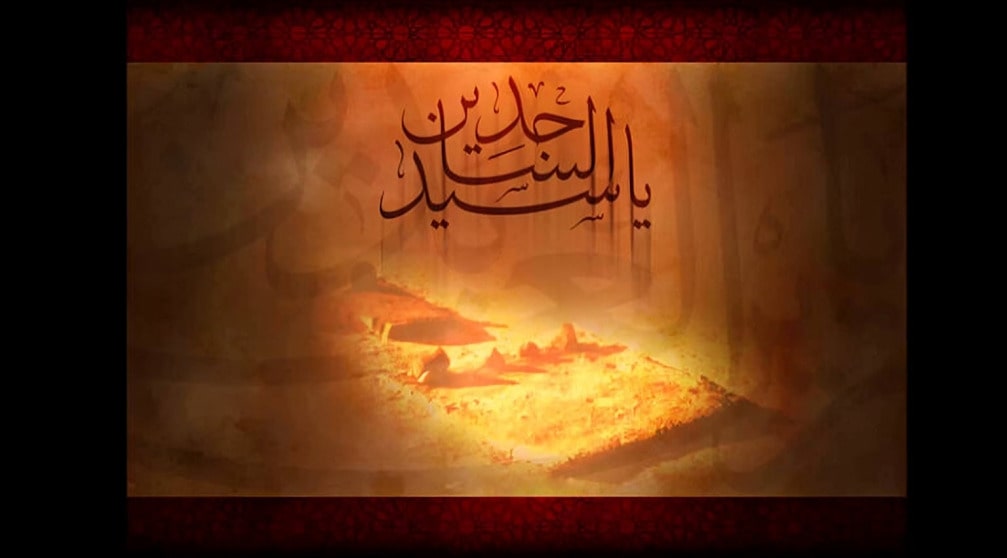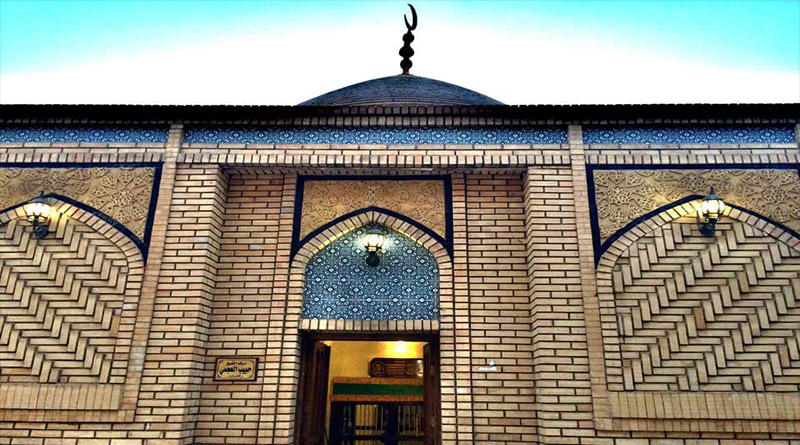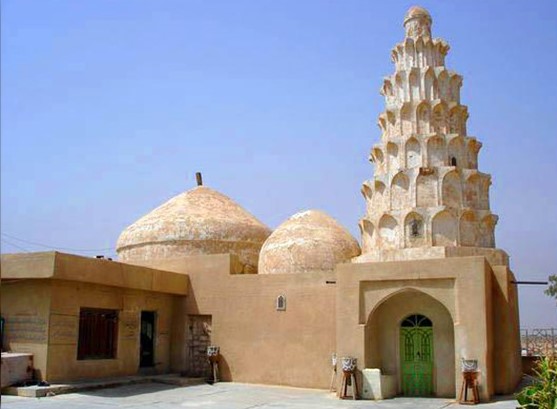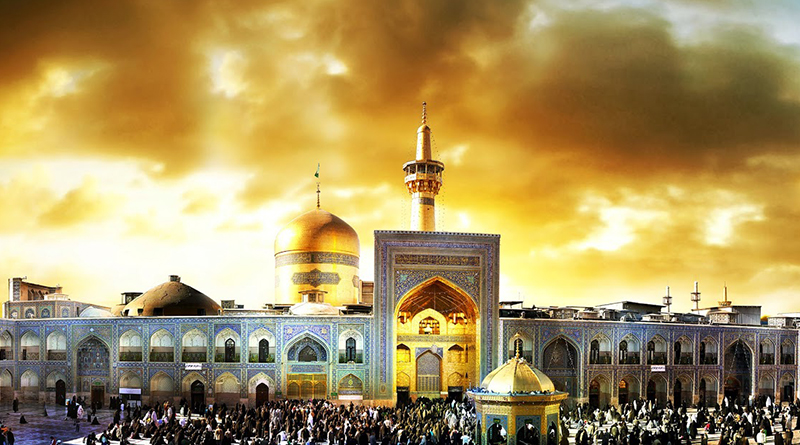The secret of the Muhammadan light and the branch of the eternal tree, the symbol of the gnostics, the adornment of the worshippers, and the delight of the lovers’ eyes.
Name
Ali ibn al-Husayn ibn Ali ibn Abi Talib (may Allah honor his face).
Titles
- Zayn al-Abidin (the Adornment of the Worshippers) due to his intense worship.
- Ali al-Asghar (the Younger Ali) to distinguish him from his brother, Ali al-Akbar, who was martyred at Karbala.
- Dhu al-Khayratayn (the One with Two Choices), as his nobility came from both Arab Quraysh and Persian lineage.
- Al-Sajjad (the One Who Prostrates Often) due to his frequent prostrations.
- Dhu al-Thafanat (the One with Calluses) due to the marks on his face from prostration.
Kunya (Honorary Titles)
- Abu al-Husayn, Abu Muhammad, and Abu Abdullah.
Birth
He was born In Kufa in the year 38 Hijri.
Children
- Muhammad al-Baqir, Abdullah al-Bahir (both from Lady Fatimah, daughter of al-Hasan ibn Ali), Zayd, al-Hasan, al-Husayn al-Asghar, Abdul-Rahman, and Sulayman. His daughters include Khadijah, Fatimah, Aliya, and Umm Kulthum.
Mother
Sulafah, the daughter of Yazdegerd, the last king of Persia, also known as “Shahrbanu.” She, along with her two sisters, was among the captives from Persia.
Tariqa (Spiritual Path)
He received the Tariqa al-‘Aliyya from his father, Imam al-Husayn (peace be upon him).
Contemporaries
- Shaykh Hasan al-Basri, Salim ibn Abdullah Ibn Umar, Qasim ibn Muhammad ibn Abu Bakr al-Siddiq, al-Zuhri, al-Shu’bi, and Ibn Sirin.
Residence
Madinah al-Munawwarah.
His Spiritual Life and Mysticism
As a descendant of the Prophet’s household, Imam Zayn al-Abidin was a beacon for the gnostics and a guiding light for anyone destined to taste the scent of divine truth. He exemplified humility and devotion, teaching what the relationship between a servant and their Lord should be. In moments of profound spiritual ecstasy, he would lose all awareness of himself and the world, as the beloved Prophet ﷺ would say, “I have a moment with Allah during which neither an angel nor a prophet can intervene.” This is the longing of light for its source, and the yearning of the part for Its whole, allowing the Beloved to bestow knowledge and secrets upon His lover as He wills.
He expressed this feeling in poetry:
“I conceal the jewels of my knowledge, For fear the ignorant might see and cause discord. O Lord, if I revealed the gems of my knowledge, They’d say I’m an idol worshipper, they’d misunderstand. The pious men of religion would spill my blood, Believing the worst of their beautiful deeds.”
Some of his unique spiritual states include:
- When he would perform ablution, his face would turn pale, and his family would ask, “What happens to you during ablution?” He would reply, “Do you know before Whom I am about to stand?”
- One night, while preparing for his devotions, he placed his hand in a water vessel to perform ablution. As he looked up at the sky and the moon and stars, he became absorbed in contemplation of their creation until dawn broke, and he did not realize the time had passed, even though his hand remained in the water.
- When he stood for prayer, his color would change, and he would pray one thousand units of prayer in a day and night.
- Once, his house caught fire while he was prostrating, and people shouted, “O son of the Messenger of Allah, fire!” But he did not lift his head until the fire was extinguished, and he was completely unaware of It.
The Imam’s spiritual life also extended to his family, companions, and even his detractors, reflecting the purity of his soul and the illumination inherited from his grandfather, the Prophet ﷺ.
Some examples of his kindness and compassion include:
- He would not eat from the same plate as his mother, saying, “I fear that my hand may reach something she intended first.”
- He carried bags of bread on his back at night to distribute in secret, saying, “Secret charity extinguishes the wrath of the Lord.” When he handed over charity, he would kiss the hand of the person receiving it before giving it.
- Many people in Madinah lived without knowing the source of their sustenance. After the Imam’s death, they discovered it had come from him in the night.
When a man slandered him, he responded, “If what you say Is true, may Allah forgive me. If it Is false, may Allah forgive you.” The man kissed the Imam’s head, saying, “I make you my ransom; you are not what I said.” The Imam replied, “May Allah forgive you.”
Imamate for the People of Tariqa
Imam Zayn al-Abidin (peace be upon him) was the imam of all, a complete guide for the people of tariqa, and the spiritual inheritor of his martyred father and his grandfather, Imam Ali (may Allah honor his face). Through his blessed influence, most of the Sufi paths have drawn from his teachings, and many people of spiritual insight and conviction have been blessed by the radiance of his lineage.
Miracles and Blessings
The miracles of our master, Zayn al-Abidin, the light of the pious, are countless. Allah has said about them: “Indeed, Allah intends to remove from you impurity, O people of the [Prophet’s] household, and to purify you with [extensive] purification”(Quran 33:33). They were granted divine power over themselves and others, but they chose surrender and entrustment, leaving their affairs to the Beloved, following the example of the Prophet ﷺ, who said, “Shall I not be a thankful servant?”
One story highlights this:
Abdul-Malik ibn Marwan sent him in chains from Madinah and placed guards over him. Imam al-Zuhri came to bid him farewell, weeping, and said, “I wish I were in your place.” The Imam replied, “Do you think this distresses me? If I wished, I could remove these chains.” Then he took his hands and feet out of the chains, threw them aside, and replaced them.
He possessed divine knowledge and visions, such as:
Abdul-Malik wrote to al-Hajjaj, saying, “Avoid spilling the blood of the Banu Abd al-Muttalib, as I saw that when the family of Sufyan engaged in this, they did not last long.” He sent this letter secretly, yet the Imam was aware of it by divine insight. He wrote to Abdul-Malik, stating the exact date of his letter to al-Hajjaj, which matched the date of the letter when it was received. Delighted, Abdul-Malik sent him money and clothes as a gift, asking for his prayers.
Passing
Imam Zayn al-Abidin (peace be upon him) passed away in 94 Hijri at the age of 58 and was buried in al-Baqi’ alongside his uncle, al-Hasan (peace be upon him).
Sources:
- Shadharat al-Dhahab, Vol. 1, pp. 104–105.
- Tahdhib al-Asma’ wa al-Lughat, Vol. 1, p. 343.
- Ahl al-Bayt, Tawfiq Abu ‘Alam, pp. 424–425.
- Tarikh al-Yaqubi, Vol. 1, p. 303.
- Adhwa’ Tarikhiyya ‘ala Usrat al-Nabi wa Ahl al-Bayt, p. 114.
- Usrat al-Nabi wa Ahl al-Bayt, Muhammad Ismail, p. 115.
- Wafayat al-A’yan, Vol. 2, p. 431.
- Al-Tabaqat al-Kubra by al-Sha’rani, Vol. 1, p. 31.
- Al-Kawakib al-Duriyya by al-Manawi, Vol. 1, pp. 139–140.
- Ahl al-Bayt, Tawfiq Abu ‘Alam, p. 426.
- Hilyat al-Awliya by al-Isfahani, Vol. 3, pp. 135–137.
- Jumhurat al-Awliya by Mahmoud Abu al-Fayd, Vol. 2, p. 71.
- Sifat al-Safwah by Ibn al-Jawzi, Vol. 2, p. 70.
- Makarim al-Akhlaq, pp. 134–183.




